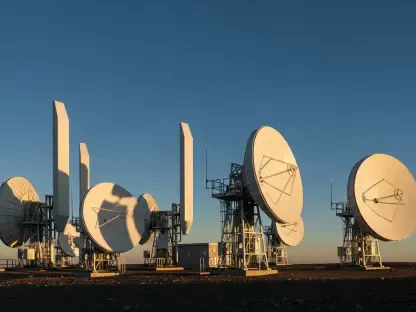FOSSA, a Spanish startup specializing in small picosatellites, has successfully secured €6.3 million ($6.8 million) in a Series A funding round to enhance its satellite capabilities with slightly larger cubesats. This funding milestone was co-led by Portuguese early-stage investor Indico Capital Partners and the venture arm of Japanese aerospace component maker Nabtesco, bringing FOSSA’s total raised capital to nearly €10 million, including government grants. Established in 2022, the company has quickly made strides in the satellite industry, having launched 17 picosatellites primarily to demonstrate basic connectivity using Long-Range radio (LoRa), a common protocol for IoT devices. With an already operational revenue stream, which includes approximately €500,000 from proof-of-concept work with industry giants such as Microsoft in 2023 alone, FOSSA is now poised to transition from proof-of-concept projects to full-fledged commercial connectivity services aimed at remote monitoring and tracking devices.The recently secured funds mark a pivotal moment for FOSSA, setting the stage for significant advancements in its technology and service offerings. However, the company has faced challenges along the way; a majority of its deployed picosatellites have de-orbited, including the latest batch of four satellites that retired prematurely due to a solar storm. Undeterred, FOSSA is focused on improving the resilience and operational lifespan of its next-generation satellites. The upcoming three-unit (3U) standard cubesats are designed for enhanced durability, promising operational lifespans of up to five years compared to the two years expected from previous models. With their first three upgraded cubesats scheduled for launch in October, FOSSA anticipates providing connectivity services to IoT devices roughly every 11 hours, a significant improvement aimed at meeting the increasing global demand for real-time IoT connectivity.
Next-Generation Satellites: Designing for Durability and Efficiency
The new funding will significantly bolster FOSSA’s ability to deploy next-generation satellites that promise greater durability and efficiency. These three-unit (3U) standard cubesats are designed to extend operational lifespans by up to five years, a notable increase compared to the expected two-year lifespan of the company’s earlier models. Leveraging advancements in satellite technology, these upgraded cubesats are expected to withstand the harsh conditions of space more effectively, reducing the risk of premature de-orbiting incidents like those caused by recent solar storms.In addition to their enhanced durability, these new satellites will offer more frequent connectivity services. The first three upgraded satellites, set to be launched in October, are anticipated to provide connectivity to IoT devices approximately every 11 hours. This improved frequency is a significant step toward minimizing latency and meeting the real-time communication needs of various industries. By 2025, FOSSA aims to deploy a fleet of 80 satellites, further reducing latency and enhancing global IoT connectivity. This aggressive deployment strategy is not just a response to market demand but also part of FOSSA’s commitment to delivering reliable and near real-time IoT services on a global scale.
Strategic Use of Funds and Future Plans
FOSSA’s CEO Julián Fernández mentioned that the recent funding guarantees the deployment of at least 20 satellites, with additional units to be financed through revenue or further fundraising efforts. Both governmental and enterprise customers are already on board for the initial commercial connectivity services, which are expected to roll out before the end of 2024. FOSSA aims to leverage its vertically integrated business model to serve not only corporate and utility clients with connectivity and asset management services but also to secure connectivity solutions tailored for national security and defense markets. This dual-market focus allows FOSSA to build a resilient business model designed to withstand competition from larger players like SpaceX.The global IoT market is expected to grow by 20% annually through 2030, potentially reaching $4 billion. This focused expansion into both commercial and governmental sectors underscores FOSSA’s strategic importance in providing localized and national alternatives for IoT solutions in Europe. Being well-positioned within this rapidly growing market, FOSSA seeks to become a key provider of IoT connectivity. With the backing of reputable investors and a growing portfolio of technological advancements, the startup appears ready to navigate the challenges and opportunities that lie ahead in the evolving satellite and IoT connectivity landscape.
Broader Trends in the European Space and IoT Markets
FOSSA, a Spanish startup focusing on small picosatellites, has successfully secured €6.3 million ($6.8 million) in a Series A funding round. This round, co-led by Indico Capital Partners and Nabtesco Ventures, brings FOSSA’s total funding to nearly €10 million, including government grants. The company, founded in 2022, has already made notable progress in the satellite industry, launching 17 picosatellites to showcase basic connectivity using Long-Range radio (LoRa), a standard for IoT devices. FOSSA has generated approximately €500,000 from proof-of-concept projects, including collaborations with industry giants like Microsoft in 2023.The new funds signify a crucial step for FOSSA, setting the stage for substantial technological and service advancements. Despite facing challenges, such as the premature de-orbiting of multiple picosatellites, including a batch due to a solar storm, FOSSA remains committed to improving the durability and lifespan of its satellites. The next-gen three-unit (3U) standard cubesats, designed for extended operational lifespans of up to five years, will launch in October. These upgraded satellites promise to offer IoT device connectivity every 11 hours, aiming to meet the rising global need for real-time IoT connectivity.









